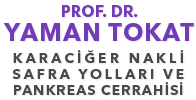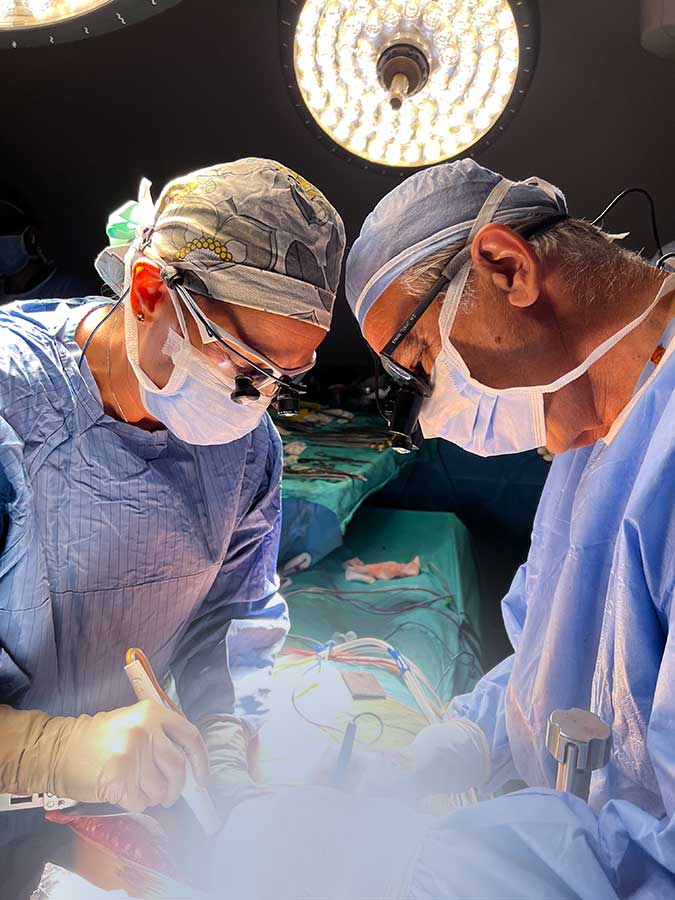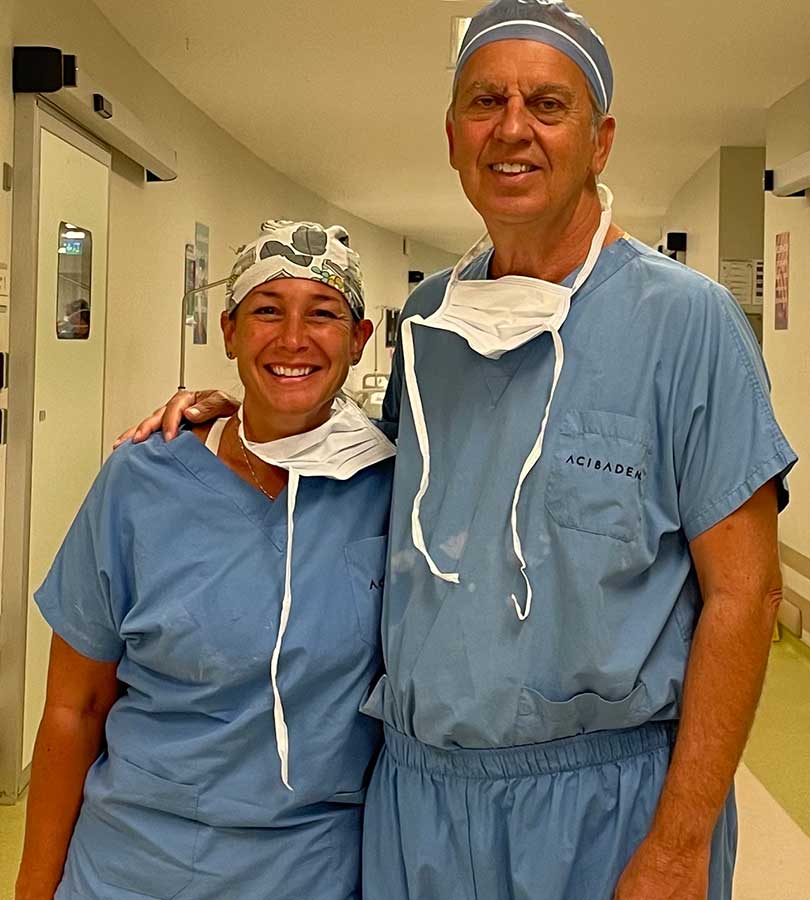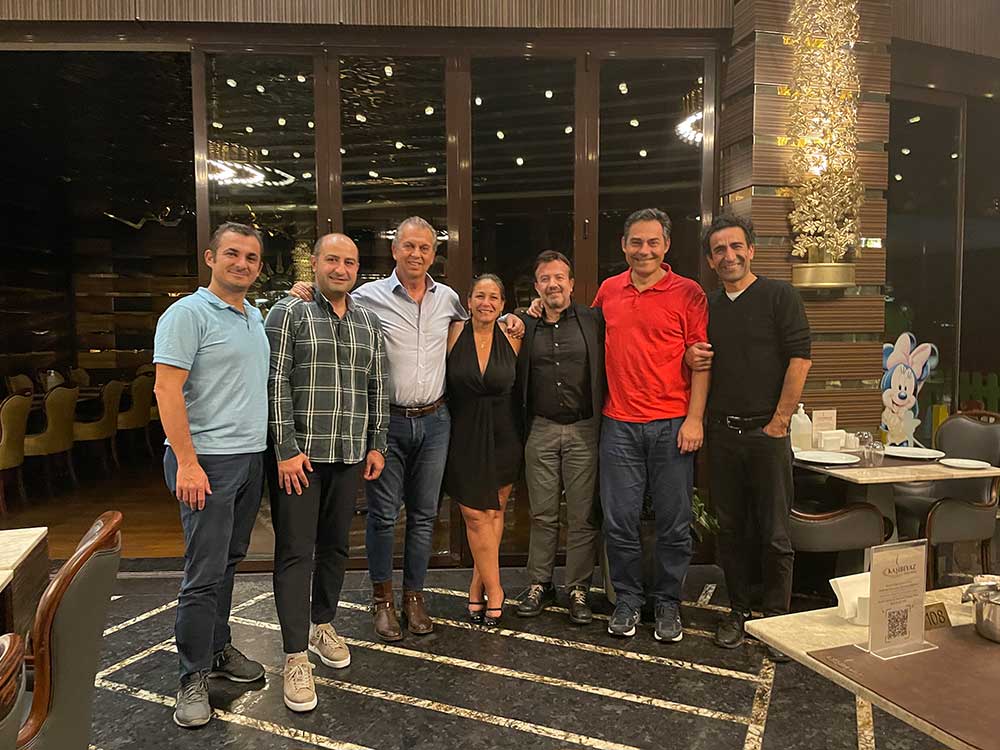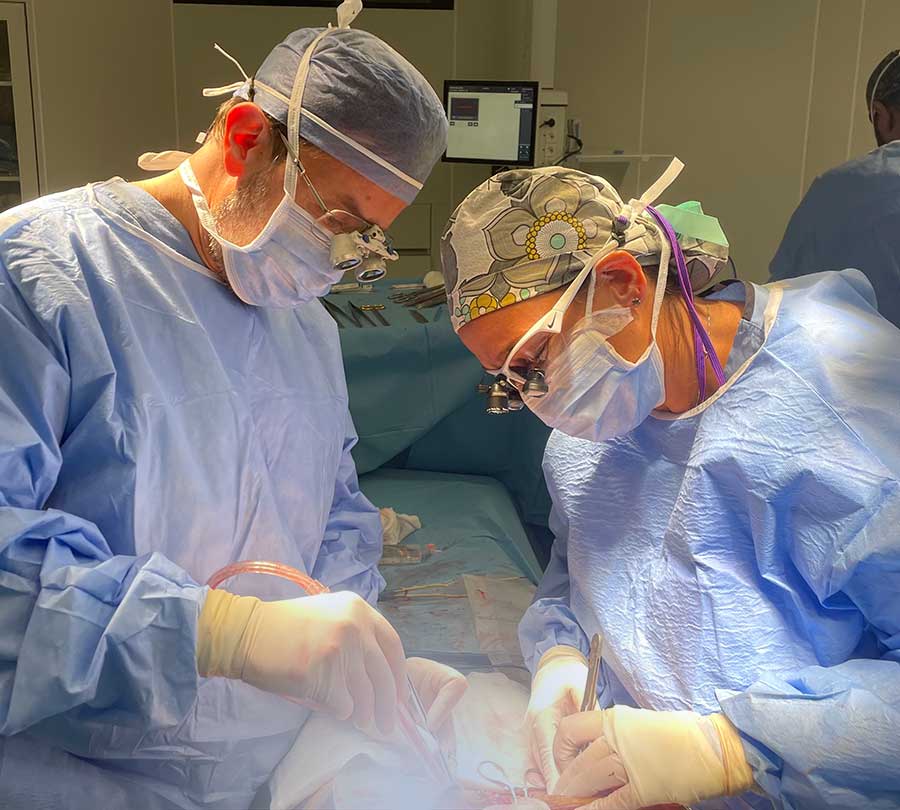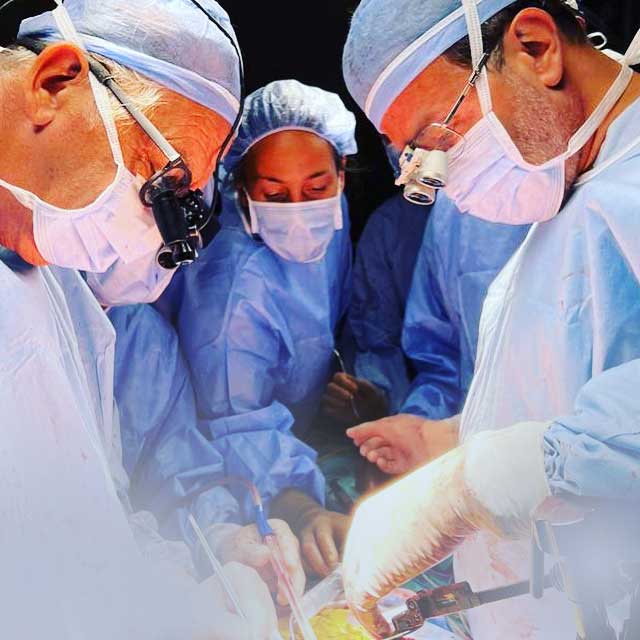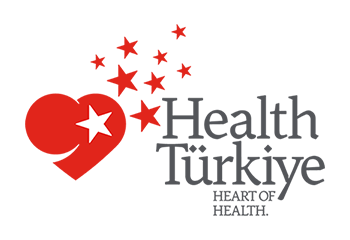Visiting Scholars Program
Dr. Holly Foote from USA is a specialist in hepatobiliary surgery and liver transplantation at NYU Langone's Transplant Institute. She received training at #International Liver Center (ILC) in 2022 under the supervision of #Professor Yaman Tokat, liver transplantation and hepatobiliary surgeon.
On her return, she shared her experience and
Dear Dr. Holly,
First of all, thank you for choosing us to take your experience further in hepatobiliary surgery. Hope you ve found what you expected and maybe more. Would you like to share your experiences with us. We want to share them on social media and try to guide other colleagues about what they can experience in our center during their fellowship period. Thank you for your collaborations and appreciate for your help.
Questions?
Q1- Tell us about your experience in hepatobiliary surgery and liver transplantation
During my six months training in Turkey, I operated in three Acibadem University hospitals: Atakent, Fulya, and Bursa. We went to Bursa every week or two to perform a living donor liver transplant, and we went to Fulya nearly every week to perform complex hepatobiliary cases (often there were multiple cases on one day). Atakent was my base hospital, where we performed approximately 3 LDLT cases per week.
Q2- What are the differences between USA and Turkey considering HPB surgery and Liver Transplantation?
I received excellent training in liver transplant under Dr. Bob Montgomery in the USA, but we did not do enough living donor liver transplantation for me to feel qualified nor comfortable performing the operation independently post-fellowship. I saw four living liver donors during my two years of fellowship; in Turkey, we performed about three or four per week. With the differences in perception of living liver donation between Turkey (and its surrounding countries) and the USA, the numbers of cases are significantly greater. Turkey is also a hub for liver transplant and straddles continents, so people from many places in Europe, Asia, & Africa come for the expertise and experience offered. Thus, a wide range of pathology is seen, as well, in both adults and children. Also because of the number of cases and the inherent schedulability of them, the same team is able to be used for each operation. This creates a “well-oiled machine” system where each case is performed at the highest level of safety and efficiency.
As for HPB surgery, I saw more complex cases in Fulya than I have seen in the USA, both because of Dr. Tokat’s experience and renown (again, many patients come from various places) and because of pathology more-often seen in areas of the world far from the US.
Q3- What is your impression of training at International Liver Center-Acibadem Healthcare Center ? What have you learned?
I was extremely impressed by my training. I didn’t know what to expect before arriving, but Yaman assured me that I would have a good experience. I could not have imagined a better learning experience. All the surgeons I worked with are excellent, experienced surgeons and thoughtful, compassionate humans. They were immediately invested in my education and in me as a person, extending every hospitality and hand they possibly could. I now feel comfortable performing the living donor liver split operation (as well as other HPB cases), and I have a renewed passion for the field of transplant surgery.
Q4- Did you have any language-related problems in communication and do you think it affected your fellowship period?
Being in a country where you don’t speak the language is always difficult, and this issue naturally adds a layer of complexity to an already-difficult endeavor. The surgeons I worked with have an excellent grasp of the English language, though, and so I was taught in English. I learned enough Turkish to be able to communicate with the OR staff who did not speak English, and can now “operate in Turkish.”
Where the language barrier had the largest effect was in not being able to be part of the day-to-day management of the patients in an efficient way. I only wish I had come to Istanbul knowing Turkish!
Q5- What are your goals for the future ? (considering liver surgery and transplantation)
I am passionate about transplantation in general for very personal reasons. My experience with transplantation in my personal life, having lost my best friend while she was awaiting an organ transplant, created an interest and enthusiasm for living donation to decrease the number of waitlist deaths, amongst other benefits. I want to continue to perform living donor liver transplants and ultimately grow a center to a point where the benefits of frequent cases are realized.
Q6- a) What are your suggestions for the fellowships who want to apply to this program? Do you recommend LDLT fellowship program in Turkey?
b)'If someone- as a patient- asks you about the option of liver transplantation in Turkey, would you recommend it?
- I 100% recommend that a surgeon who wants to learn the living donor liver operation go to Turkey and spend time with Dr. Yaman Tokat and his colleagues. My only suggestion would be to learn some conversational Turkish before they go!
- Absolutely.
Q7- Could you please sum up your Turkey experience in three sentences?
I came to Turkey as a well-trained deceased-donor liver transplant surgeon who was looking for additional training in living donation. I spent six months with some of the best surgeons and most-wonderful people that I have encountered in all of my training, and I left Turkey emboldened, empowered, and with a renewed passion for transplantation and hepatobiliary surgery. I have never made a better career decision in my life, and I will be forever grateful for the experience at Acibadem with Drs Yaman Tokat, Remzi Emiroglu, Hamdi Karakayali, Utku Yilmaz, and others.
Thanks for your valuable time and support, grateful so much.


